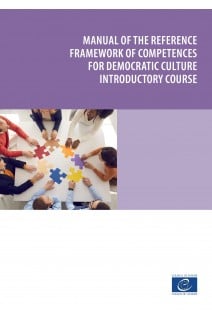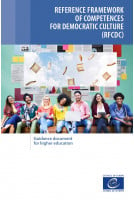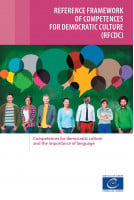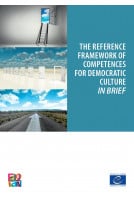INTRODUCTION GENERAL ASPECTS
Target group
Prerequisites
Learning outcomes
Structure and schedule
Technical requirements
General methodological guidelines
COURSE OVERVIEW
Session 1 – Introduction: key concepts and the model of competences for democratic culture
Session 2 – The descriptors of competences for democratic culture and the whole-school approach
Session 3 – Teaching, learning and assessing competences for democratic culture
Session 4 – Competences for democratic culture and project-based learning
Session 5 – Addressing challenges in school with the RFCDC
Session 6 – Final reflection and planning ahead
SESSION PLANS
Session 1 – Introduction: key concepts and the model of competences for democratic culture
Session 2 – The descriptors of competences for democratic culture and the whole-school approach
Session 3 – Teaching, learning and assessing competences for democratic culture
Session 4 – Competences for democratic culture and project-based learning
Session 5 – Addressing challenges in school with the RFCDC
Session 5.1. – Student voice as part of a vivid democratic school culture
Session 5.2. – The competences for democratic culture as a tool for addressing violence and bullying in school
Session 5.3. – The competences for democratic culture and preventing discrimination
Session 5.4. – The use of competences for democratic culture in addressing school issues: student voice, violence and bullying, and discrimination
Session 6 – Final reflection and planning ahead
BACKGROUND INFORMATION FOR A COMMON UNDERSTANDING
What are competences for democratic culture?
The need for competence descriptors
Pedagogy
Assessment
Competences for democratic culture and the whole-school approach
REFERENCES
Main reference
Further reading









